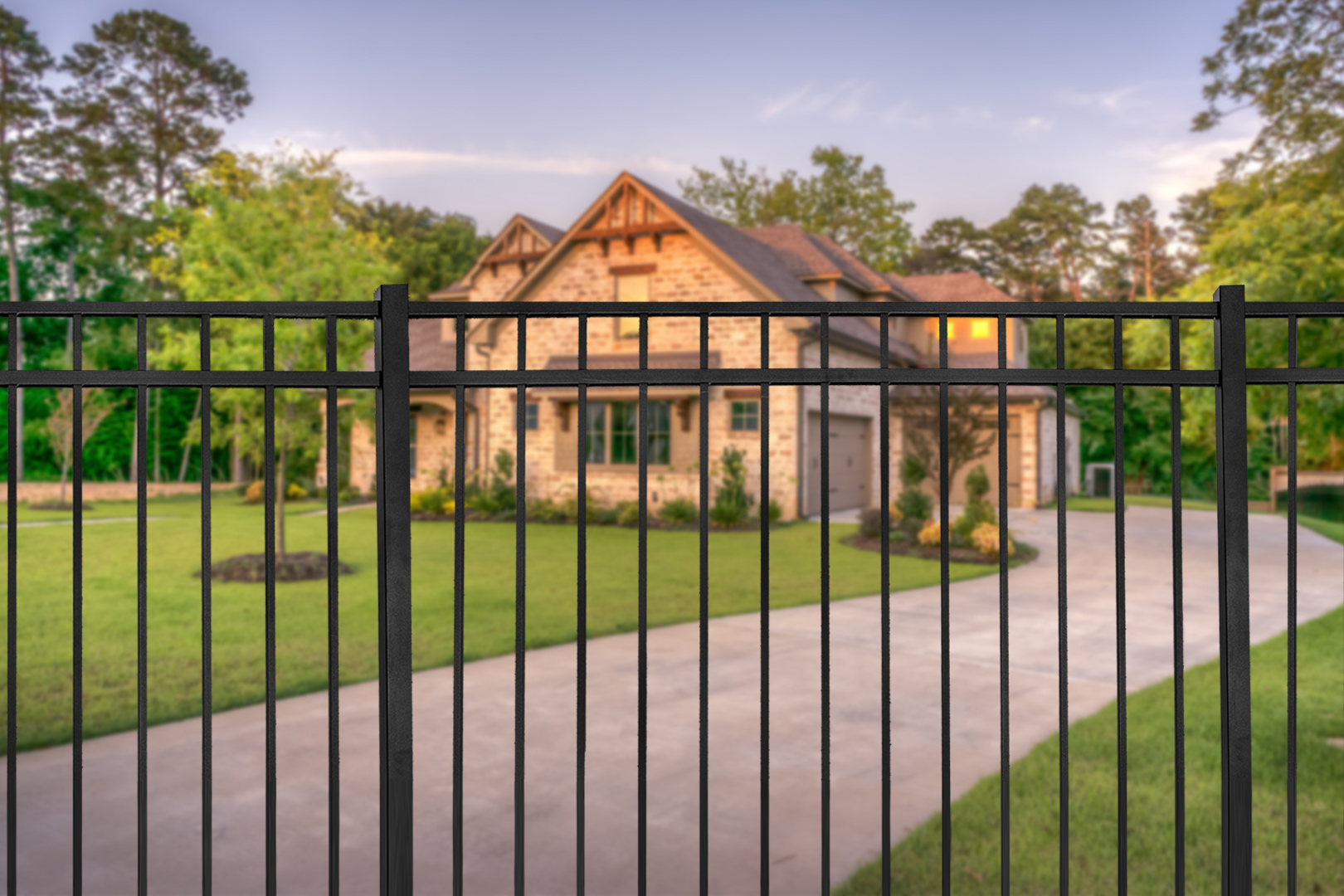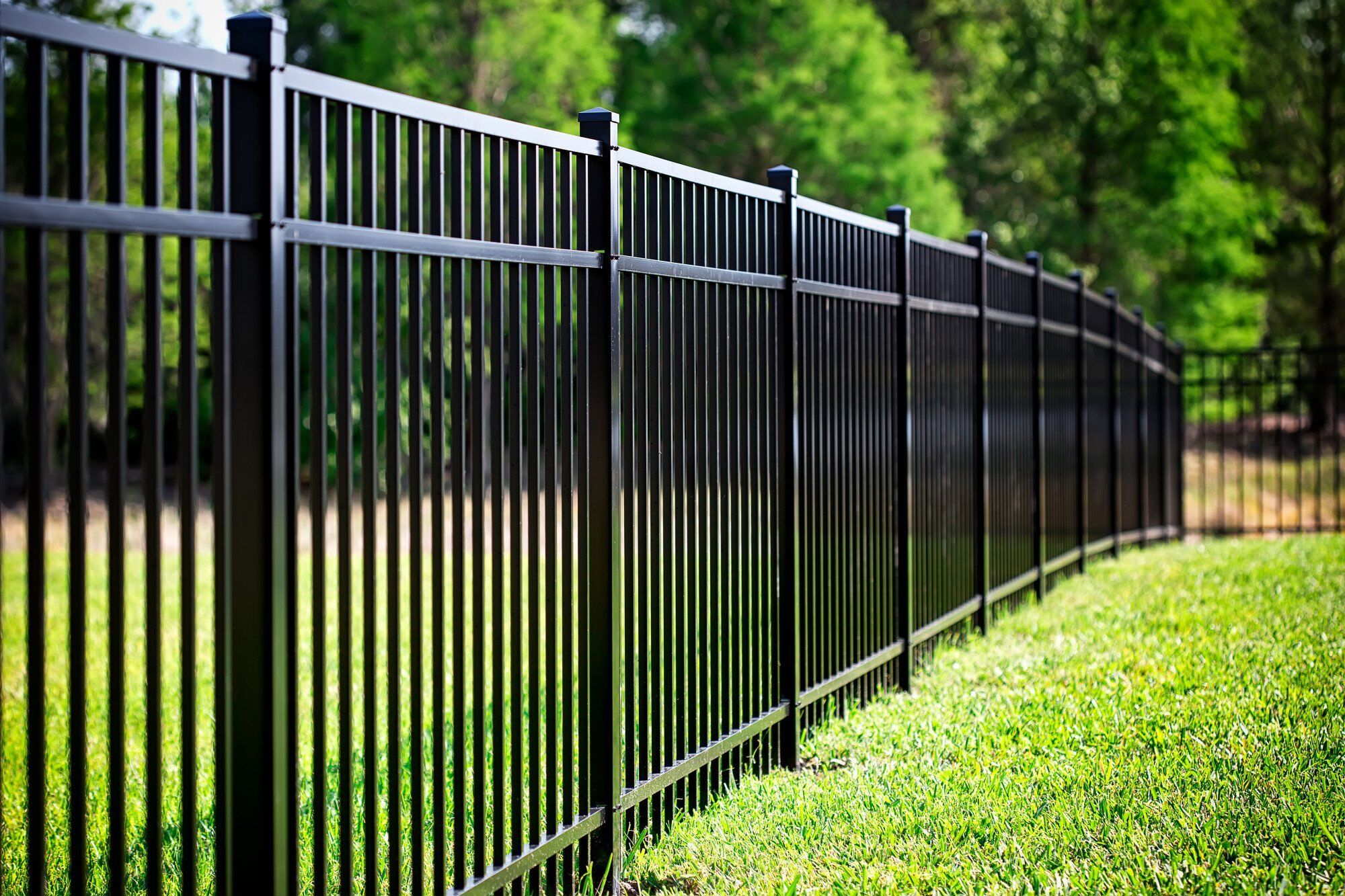Featured

When installing a fence, picking the right material is essential to stabilizing functionality, visual appeals, and spending plan. Timber, vinyl, and light weight aluminum are among one of the most typically picked secure fencing products, each with its toughness and disadvantages. This overview discovers the pros and disadvantages of these alternatives to assist you make an educated decision.

Wood Fence. Pros:. All-natural Beauty: Timber's timeless charm can enhance any kind of building with its cozy and classic appearance. Customizable: You can repaint, tarnish, or sculpt timber to fit your style choices. Budget-friendly: Timber fence is at first more budget-friendly contrasted to some various other materials. Eco-friendly: As a renewable energy, timber is eco-friendly and often thought about green. Cons:. Maintenance-Intensive: Regular sealing, paint, or staining is required to avoid damage from climate and insects. Prone to Decay: Without proper treatment, wood can rot, warp, or crack gradually. Much shorter Lifespan: On standard, timber fencings last 10-15 years, depending upon the kind of wood and maintenance. Timber is a great alternative for those who value appearances and agree to purchase regular maintenance to maintain its look and resilience.
Vinyl Fencing. Pros:. Low Upkeep: Plastic requires very little care-- just periodic cleansing with soap and water. Weather Resistant: It doesn't warp, rot, or catch insect damage, making it highly sturdy in various environments. Long life: Vinyl fencings can last 20-30 years with little to no repair work. Layout Range: Available in a large range of colors, styles, and structures, consisting of wood-like appearances. Disadvantages:. Greater Initial Expense: Vinyl fencings are a lot more costly in advance contrasted to wood. Vulnerability to Cold: In incredibly cool weather condition, plastic can become weak and vulnerable to cracking. Restricted Repair Work Options: Matching substitute panels can be testing if damages happens. Plastic fencing is ideal for home owners seeking a lasting, low-maintenance service that uses modern convenience.

Light Weight Aluminum Secure Fencing. Pros:. Rust-Proof: Aluminum resists corrosion, making it a superb selection for damp or damp environments. Long lasting: Regardless of being lightweight, aluminum is strong and can endure severe climate condition. Low Upkeep: It requires minimal upkeep, typically only periodic cleansing. Long Lifespan: Aluminum fences can last decades without considerable wear and tear. Stylish Design: Frequently used for decorative objectives, light weight aluminum fencing adds a sleek, advanced seek to buildings. Disadvantages:. High First Financial investment: Aluminum fences are among the pricier alternatives on the market. Much less Personal privacy: The open layouts common with light weight aluminum secure fencing do not supply much personal privacy. Susceptible to Damage: While resilient, light weight aluminum can damage if struck with adequate pressure. Light weight aluminum is an exceptional option for property owners prioritizing aesthetic appeals and longevity without calling for much maintenance.
Making Your Choice. When choosing in between vinyl, light weight aluminum, or timber secure fencing, consider your concerns:
Timber suits those who appreciate a natural look and do not mind placing in upkeep initiative. Plastic is the best option for those seeking a low-maintenance, weather-resistant remedy. Aluminum uses smooth style and lasting sturdiness yet may do not have privacy. By very carefully evaluating these products' features, you can select a fence that matches your building while meeting your visual and useful demands.
Latest Posts
Smooth Light Weight Aluminum Gutters: The Smart Option for Your Home
Published May 23, 25
1 min read
Safeguard and Improve Your Home with Weathercraft's Exterior siding Solutions
Published May 23, 25
1 min read
Check Out Best Vehicle Maintenance Solutions from Montclare Auto Repair – Reliable Repairs Await
Published May 23, 25
1 min read
More
Latest Posts
Smooth Light Weight Aluminum Gutters: The Smart Option for Your Home
Published May 23, 25
1 min read
Safeguard and Improve Your Home with Weathercraft's Exterior siding Solutions
Published May 23, 25
1 min read
Check Out Best Vehicle Maintenance Solutions from Montclare Auto Repair – Reliable Repairs Await
Published May 23, 25
1 min read